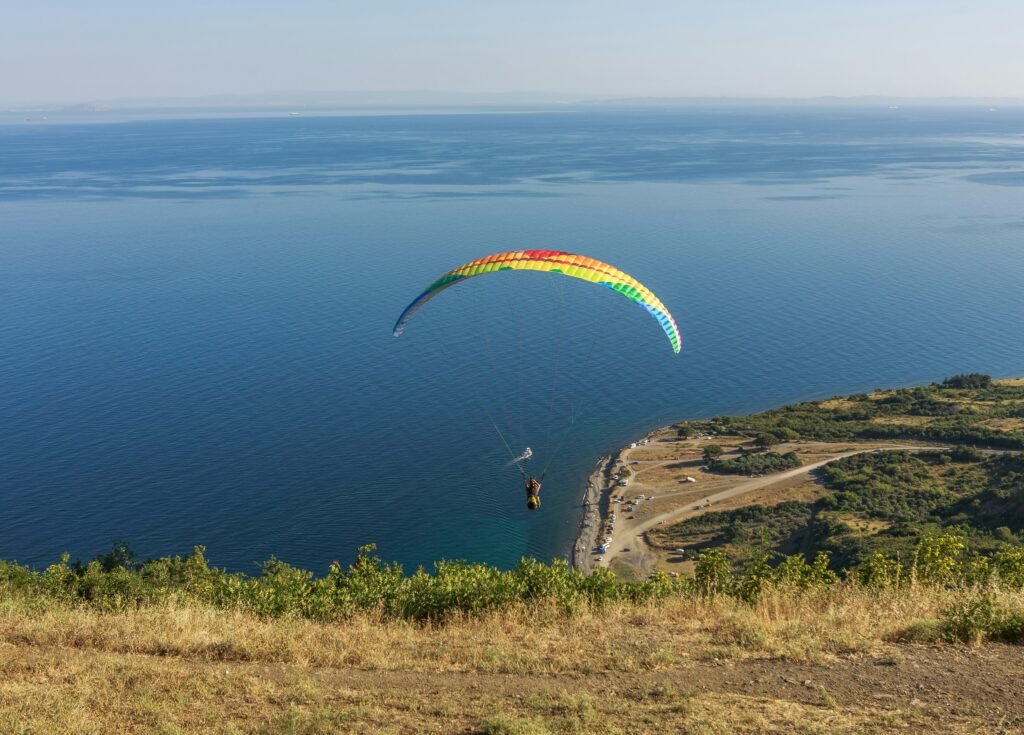
Why Embrace the Great Outdoors?
Embracing the great outdoors offers a myriad of benefits that transcend physical health. Recent studies have shown that spending time in nature significantly improves mental well-being. According to research published in the journal Environmental Science & Technology, engaging in outdoor activities reduces levels of cortisol, the stress hormone, thereby alleviating symptoms of anxiety and depression. This natural therapy encourages a holistic approach to health, one that modern medicine increasingly acknowledges.
Beyond mental health, the physical benefits of outdoor activities are well-documented. A study from the American Heart Association found that outdoor exercises, such as hiking or cycling, can lower the risk of cardiovascular diseases. Being in nature compels people to move more, countering the adverse effects of a sedentary lifestyle. Outdoor enthusiasts often find that they are motivated to engage in regular physical activities simply because the environment is more stimulating and enjoyable than indoor settings.
The emotional balance that nature provides is another compelling reason to embrace the great outdoors. Nature has a unique way of grounding us, offering a sense of peace and tranquility that few other environments can match. Dr. David Strayer, a cognitive psychologist at the University of Utah, notes that nature has restorative properties that replenish our cognitive capacities. Immersing oneself in natural settings allows for introspection and emotional healing, contributing to a more balanced and fulfilling life.
Personal stories further underscore the value of outdoor adventures. Sarah, a devoted hiker, shares, “Whenever I feel overwhelmed, I take a walk in the forest. The fresh air and the sounds of nature work wonders for my spirit.” Quotes like these illustrate the profound impact that nature has on individuals, making it clear that the great outdoors is not just a luxury, but a necessity for a balanced lifestyle.
In sum, the great outdoors offers immeasurable value. From boosting physical health to enhancing mental and emotional well-being, outdoor activities present a compelling case for integrating nature into our daily lives. The evidence is clear: embracing the great outdoors is a vital component of a healthy and balanced lifestyle.
Unveiling the Ultimate Outdoor Adventures
Embarking on an outdoor adventure is an unrivaled means of immersing oneself in nature while engaging in thrilling activities that challenge both the body and mind. This guide offers an expansive range of outdoor activities, catering to enthusiasts of all levels—from novices to seasoned explorers. Whether you’re drawn to the rugged allure of hiking, the exhilaration of mountain biking, the tranquility of kayaking, or the serenity of camping, we’ve detailed each pursuit to ensure you’re well-prepared and thoroughly inspired.
Hiking
Hiking is an accessible and rewarding activity that allows participants to explore diverse landscapes, from mountain trails to dense forests. Essential gear includes sturdy hiking boots, breathable clothing, and a reliable backpack packed with water, snacks, and a first-aid kit. Beginners should start with well-marked trails, gradually progressing to more challenging terrains. Renowned hiking destinations include the Appalachian Trail in the United States, the Inca Trail in Peru, and the Great Wall of China. Locally, state parks and nature reserves offer excellent day-hiking options. Always stay informed about trail conditions and adhere to ‘Leave No Trace’ principles to protect the environment.
Mountain Biking
Mountain biking delivers a thrilling experience characterized by speed, agility, and technical skills. Riders need a durable mountain bike, a helmet, gloves, and protective gear. Trails vary in complexity, from smooth single tracks to rugged off-road paths, making it crucial to match your skill level with the trail’s difficulty. Colorado’s Crested Butte, Italy’s Dolomites, and New Zealand’s Rotorua are top destinations for this sport. Local trails can often be found in nearby forests or managed bike parks. Regular bike maintenance and trail etiquette, such as yielding to hikers, are key to a safe and enjoyable ride.
Kayaking
Kayaking invites adventurers to navigate waterways and enjoy unique perspectives of coastal regions, rivers, and lakes. Essential equipment includes a kayak, paddle, life jacket, and appropriate clothing. Beginners should practice in calm waters before tackling whitewater rapids or sea kayaking. Destinations like Alaska’s Glacier Bay, Norway’s Fjords, and the Mediterranean coast offer spectacular kayaking experiences. Local bodies of water, such as lakes and slow-moving rivers, provide accessible options for practice and day trips. Safety measures, including weather checks and wearing a life jacket, should never be overlooked.
Camping
Camping immerses individuals in the natural world, offering the experience of simplicity and self-reliance. Essential gear includes a tent, sleeping bag, cooking supplies, and weather-appropriate clothing. Campers can opt for established campgrounds with amenities or venture into backcountry for a more rugged experience. Iconic sites like California’s Yosemite National Park, Finland’s Lapland, and Australia’s Outback provide unparalleled camping opportunities. Local campgrounds in state parks and national forests are also excellent choices. Key safety tips include practicing proper food storage to deter wildlife and ensuring campfires are completely extinguished.
Testimonials from avid adventurers and expert tips frequently emphasize that thorough preparation and respect for nature significantly enhance the outdoor experience. These activities not only promise physical benefits but also foster mental well-being by connecting participants with the great outdoors. As you plan your next escapade, let the excitement for exploration guide you, armed with the knowledge and insights provided to maximize your adventure while minimizing risks.